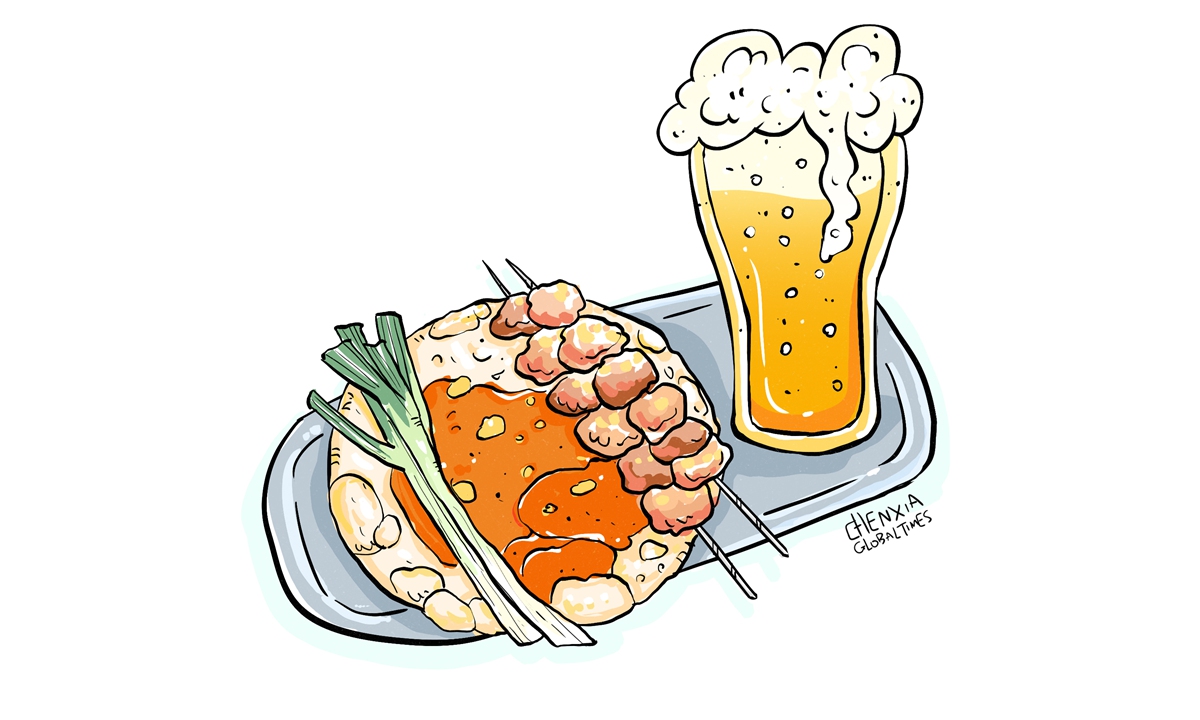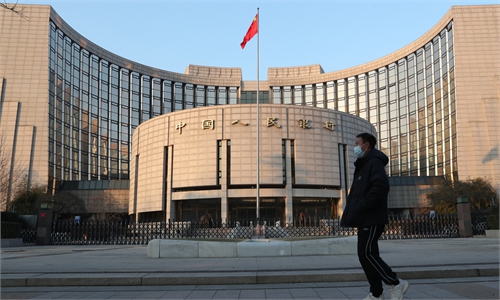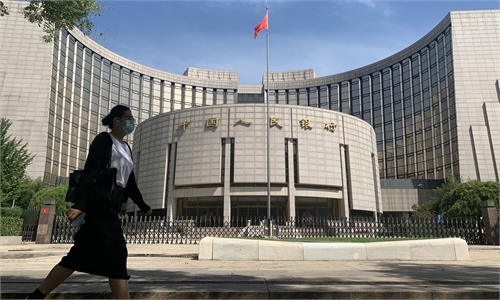
Illustration: Chen Xia/Global Times
Zibo, a once low-profile industrial city in East China's Shandong Province that has unexpectedly turned into a trendy tourist destination for its unique barbecue industry, has attracted wide attention from the foreign press. Freshly-baked pancakes, dipping sauce, and grilled pieces of skewered meat… Chinese economists could never have imagined that barbecue would be used as leverage to attack the Chinese economy, but it has happened. It reflects the West's lack of understanding on the Chinese economy.
Citing analysts, CNN said in a report on Tuesday that a "worsening economic outlook" has prompted Chinese policymakers to strike a "more conciliatory" tone toward private business and small and medium enterprises. The report claimed the government cannot find better ways to create employment than encouraging young people to be street vendors.
The claim is nonsense. It seemingly portrays a scenario in which China's growth has been simplified into a barbecue frenzy. The obvious wishful thinking of some Western elites is arrogant and naive. It is using a much too simple mind to understand the world's second-largest economy, which is diverse and complex.
Let's take the example of Zibo. While many have been focusing on the city's barbecue frenzy, which has boosted revenue in service industries such as tourism, catering, and hotels, less attention has been paid to its industrial development. According to data released by the Zibo Bureau of Statistics in May, the city's secondary industry generated 50.74 billion yuan ($7.2 billion) of added value in the first quarter of 2023, up 4.6 percent, and the tertiary industry generated 52.52 billion yuan of added value, up 4.7 percent. As can be seen, Zibo in the first quarter saw an industrial growth rate that is basically the same as that of the service industry.
Zibo's barbecue frenzy came against the backdrop of the recovery of China's domestic tourism. Official data showed a total of 274 million trips were made during the May Day holidays this year, a rise of 70.8 percent from a year earlier and nearly 20 percent more than the 2019 pre-epidemic level. The city of Zibo is not the only tourist hotspot. Tourist destinations across the country were flooded with millions of visitors. The tourist boom offers an unmistakably sign that the Chinese economy has been steadily emerging from the shadow of COVID-19. The barbecue craze and tourist boom shed light on the strength and sustainability of China's consumption rebounding momentum. It is a positive signal of economic recovery, not a negative one.
Of course, as China moves decisively to get out of the haze of the COVID-19 pandemic, some industries, like tourism, recover quickly, with others moving at a relatively slow pace. This is a normal thing. China has a population of more than 1.4 billion. Its economy is an uneven and complex landscape. However, some Western elites' views of the Chinese economy are simplistic. On the one side, sectors with rapid development are considered to have received strong government support that those Western elites mistakenly believed to be the only focus of the Chinese economy. On the other side, sectors suffering from relatively slow development are cited as examples of waning recovery in the Chinese economy, which reflects their biased judgment.
Amid the global economic slowdown, there is no need to deny that the Chinese economy faces challenges, but they can be overcome with a stable recovery in the economy. China's job market continued to show improvement in April as the nation's economy is rebounding, data from the National Bureau of Statistics showed on Tuesday. Its surveyed urban unemployment rate stood at 5.2 percent in April this year, down 0.1 percentage points from March. Fu Linghui, a spokesperson for the NBS, told a press conference that China's job market has improved since the beginning of the year, but pressure still remains, taking into consideration the record number of college graduates this year and the high unemployment rate among youths aged between 16 and 24.
The "street vendor economy" can help offer more jobs in the Chinese economy, but it does not mean there are problems in China's job market. If Western elites want to understand the real Chinese economy, they need to take a more comprehensive view of the overall situation, instead of focusing only on a barbecue frenzy.
The author is a reporter with the Global Times. bizopinion@globaltimes.com.cn



